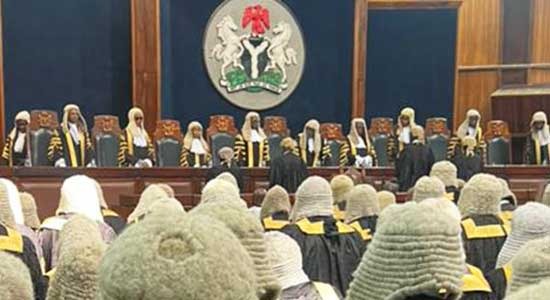Nigerians Praise House of Reps’ Proposal to Decentralise Supreme Court
 The move by the House of Representatives to decentralise the Supreme Court of Nigeria has received widespread praise, particularly from legal professionals, who see the bill as a significant step towards enhancing access to justice and reducing the heavy burden on the apex court.
The move by the House of Representatives to decentralise the Supreme Court of Nigeria has received widespread praise, particularly from legal professionals, who see the bill as a significant step towards enhancing access to justice and reducing the heavy burden on the apex court.
On December 9, 2024, the House of Representatives introduced a bill seeking to create five divisions of the Supreme Court across the country, in addition to the main court in Abuja. The proposed divisions will be located in Umuahia for the South East, Bauchi for the North East, Uyo for the South-South, Lagos for the South West, and Kano for the North West. Abuja will continue to serve as the headquarters, catering for the North Central region.
The bill, titled “A Bill for Act to Amend the Constitution of the Federal Republic of Nigeria, 1999,” seeks to alter Section 230(1) of the 1999 Constitution (as amended) to allow the creation of these divisions. Its primary goal is to bring the highest court’s services closer to Nigerians, reduce the logistical costs of accessing justice, and ensure the timely dispensation of cases before the court.
Legal experts have hailed the move, with many noting that it would alleviate the overcrowding of cases in the Supreme Court, thus speeding up justice delivery.
Mrs. Bridget Edokwe, the National Publicity Secretary of the Nigerian Bar Association (NBA), described the proposal as a much-needed reform. She explained, “The decentralisation of the Supreme Court will not only fast-track the resolution of cases but also reduce the financial burden on litigants, especially those from regions far from Abuja. Currently, litigants from outside the North Central face significant costs when travelling to Abuja for hearings.”
Enugu-based lawyer and public affairs commentator C.I. Nnamani also endorsed the bill, stating that decentralisation could expedite the hearing of appeals, which often take several years. He further supported the decision to maintain Abuja as the hub for the North Central zone, saying it would prevent unnecessary duplication of resources.
Human rights lawyer Malachy Ugwummadu, a former president of the Committee for the Defence of Human Rights (CDHR), emphasized the administrative benefits of decentralisation. He pointed out that this approach is not new, referencing the 1960 and 1963 constitutions, which allowed for the Supreme Court to sit in various regions to promote administrative convenience.
Ugwummadu cautioned, however, that decentralisation should not be confused with a push for state Supreme Courts. He noted that while decentralisation could help manage the volume of cases, it does not equate to the establishment of separate Supreme Courts for each state, as seen in other federations like the United States.
He further highlighted the problem of overloaded dockets in Nigeria’s appellate courts, which are often clogged with cases such as family or land disputes that are not suited for the Supreme Court. According to Ugwummadu, decentralising the court could help address these issues by allowing regional courts to focus on everyday matters, while the Supreme Court deals with national issues like elections, constitutional interpretation, defense, and currency.
As the bill moves through the legislative process, many see it as a much-needed reform that could help alleviate the burden on the Supreme Court and bring justice closer to the people.













